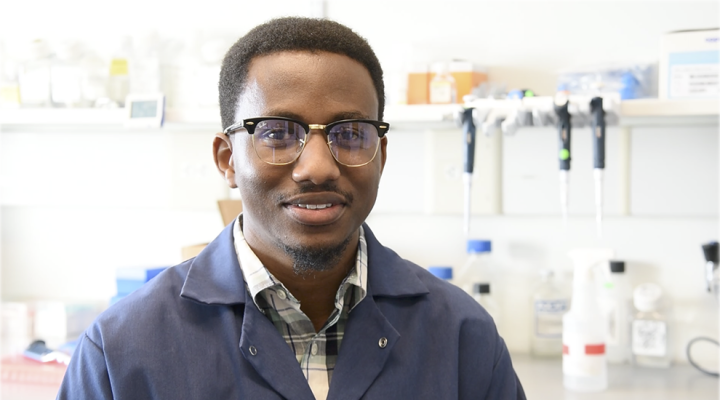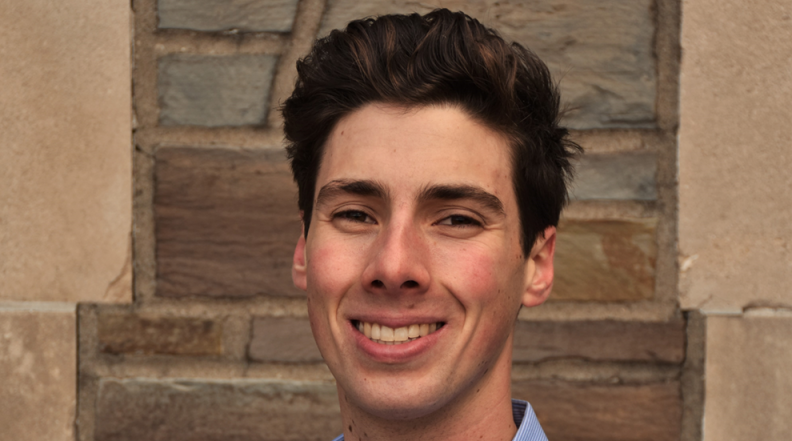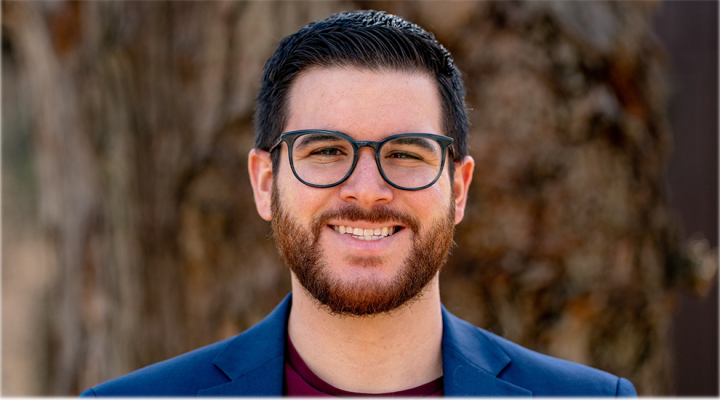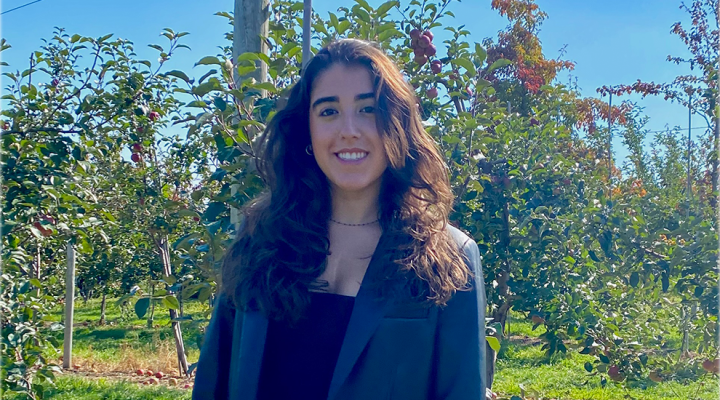Hometown: Needham, MA
BME Degree Program: Undergraduate
Lab affiliation/Adviser: Dr. Christopher Hernandez
Awards/honors: Dean’s List Fall 2017 - Fall 2020
What made you choose BME as your major and what interests you most about it?
I ultimately chose BME because it is unlike any other engineering field. In other fields, the building blocks are well defined – whether that be gears and beams, polymers, or circuit components. The goal of BME is human-centered engineering, and it represents the interface of other engineering fields with the human body. However, our natural biology and physiology doesn’t easily distill into neat equations, so a large part of the major focuses on approximating human complexity into a form that we as engineers can then reconstruct and improve upon. That additional level of unknown is what has interested me since freshman year, and the complexity only builds as you learn more.
How did you decide on your BME concentration, Biomechanics and Mechanobiology (BMMB)?
Before entering Cornell, I was deciding between either mechanical or biomedical engineering, and I had always enjoyed the tangible nature of mechanical systems. My coursework and lab experiences through my first three years had pushed me towards the biomechanics side of the major, and I felt like BMMB was the concentration I would be most passionate about. I have since found that my interests lie in learning about the physiological responses to mechanical stimuli - which is complex and only now beginning to be understood - and specifically how to leverage that into cutting-edge technologies and therapies. Many courses for the BMMB concentration are offered through the MAE department, so it’s been great to have that level of diversification in my curriculum.
What do you think are some of the most important skills you’ve learned while pursuing this major?
The BME faculty has constantly stressed the importance of collaboration and teamwork through all my years at Cornell. I think, as freshmen, we were initially all hesitant to take initiative and leadership on a project, but it’s really great to see how much that has changed. Now, everybody in the major is confident in their skills as engineers and team members, and they really commit fully to bringing their best effort on board any group they are a part of. Learning new content and skills in courses is important, but equally valuable is having the experience of applying it as a member of a team. The BME major places a huge emphasis on combining those two aspects for being a successful engineer.
What are some of the skills you think someone should possess in order to do well in this major?
I think that BME stands apart from other engineering majors because of the range of courses that are part of your curriculum. It’s inevitable that one of those courses will either be something that you aren’t passionate about, or that challenges you in an unexpected way. The most important thing is to know that you’re at Cornell for a reason and to have the confidence in your ability to succeed in something that you hadn’t previously encountered. Perseverance and intellectual confidence are skills that one has to develop, and the major will definitely challenge you in those facets.
What advice might you give other students considering BME?
My main piece of advice is to be open-minded to new opportunities and not commit to the first thing that interests you. I came in with some preconceived notions of what BME consists of, and over my first two years, I was constantly astounded by the actual range of opportunity within the field. I think everyone can benefit by slowing down and exploring their passions before feeling like they need to commit to a graduate field, lab group, or project team. Getting hands-on experience outside of the classroom is one of the most fulfilling parts of my time at Cornell, but I also think that time for academic discovery without a specific goal in mind is invaluable.
Any interests outside of or in relationship to your scholarship?
This past summer I had the opportunity to work at Rheonix, a Cornell alumnus-founded company right here in Ithaca, which modified their molecular diagnostic instruments for accurate and affordable Covid-19 testing. My primary role was to design an automated high-volume filling system for reagent packs, which would allow Rheonix to meet the massive demand for rapid testing at regional healthcare centers contracting with them. The project was open-ended, novel, and collaborative - and while it didn’t fully align with my classroom interests - I felt like my BME courses and other electives had prepared me to succeed in all aspects of the job.
Outside of academics, I have been the Cycling Club president for the last two years and have really come to love Ithaca and its surroundings. The competitive and recreational cycling opportunities during the warm-weather months are exceptional and having nature so close to campus has been a huge part of my life the past four years.
What’s the next step for you and who or what has led you in this direction?
This spring semester I am starting my Masters of Engineering in BME while finishing up my last two undergraduate courses. I anticipate completing that degree in December, at which point I will go out into industry work which allows me to apply all my skills from 4.5 years at Cornell! My most helpful resource over the last few years has been Dr. Hernandez, whose lab group I have been a part of since sophomore year. He has been invaluable in tailoring my role in the lab to align with my post-graduation goals, and he makes sure that everything we do is placed in the context of long-term objectives.
Favorite quote that helps inspire you in your work/life?
I’m a big football fan, so I have a soft spot for corny quotes about work ethic. One of my favorites is from all-time great Jerry Rice:
“Today I will do what others won't, so tomorrow I will do what others can't.”
Regardless of the level of success you are looking to achieve, a big part of it is about recognizing the merits of constantly challenging yourself to improve. Once I began looking forward to new challenges, I realized how easy and rewarding it is to develop a new skill or interest that had previously seemed unattainable.
More info/follow:





